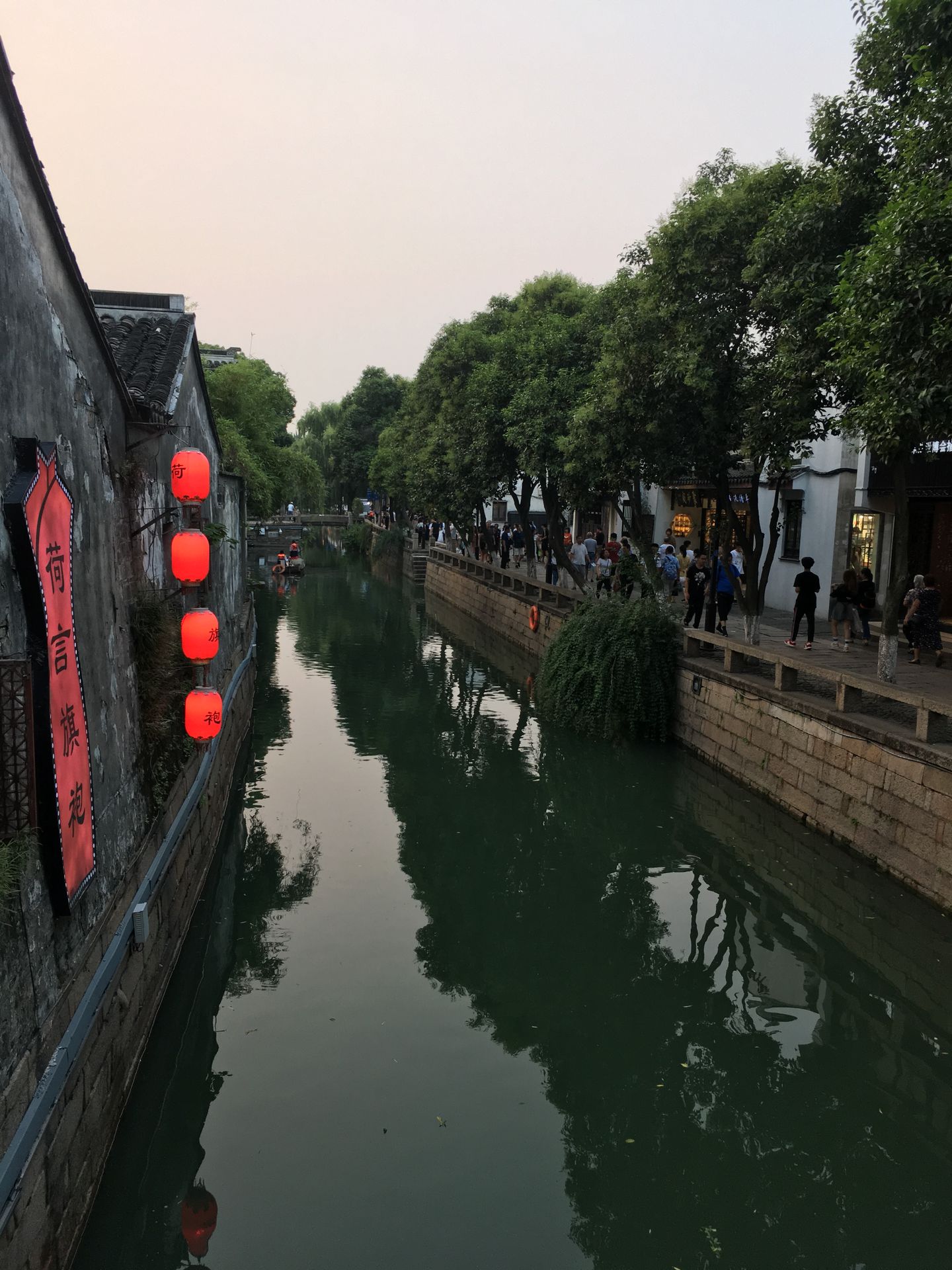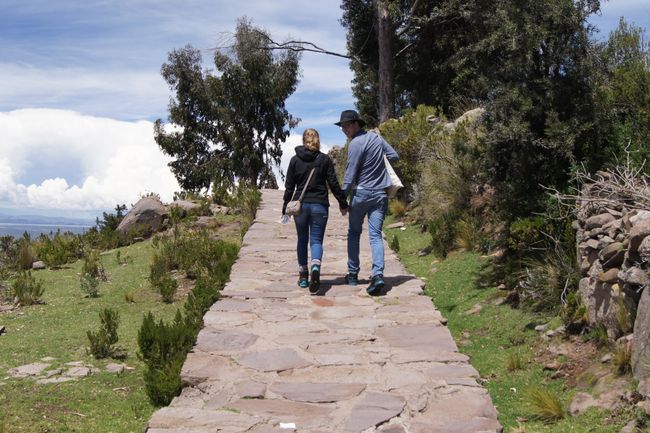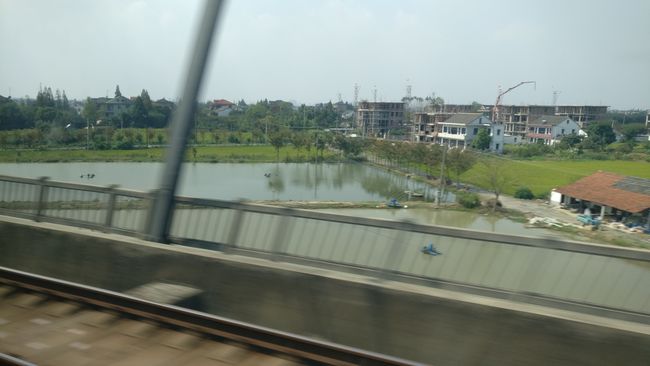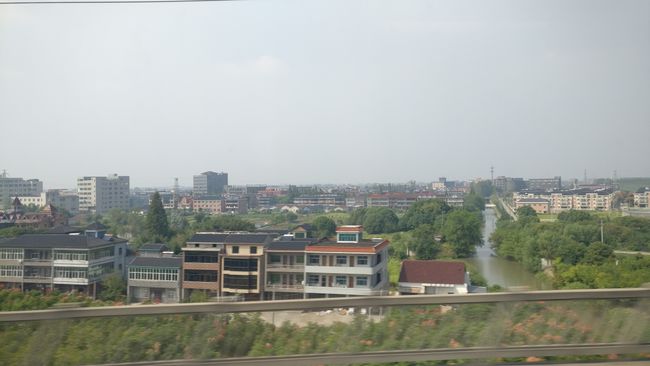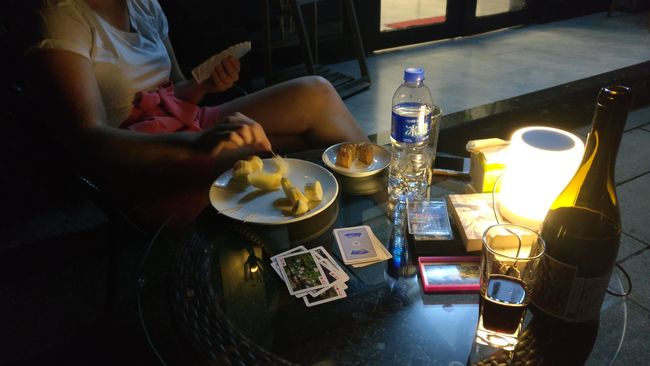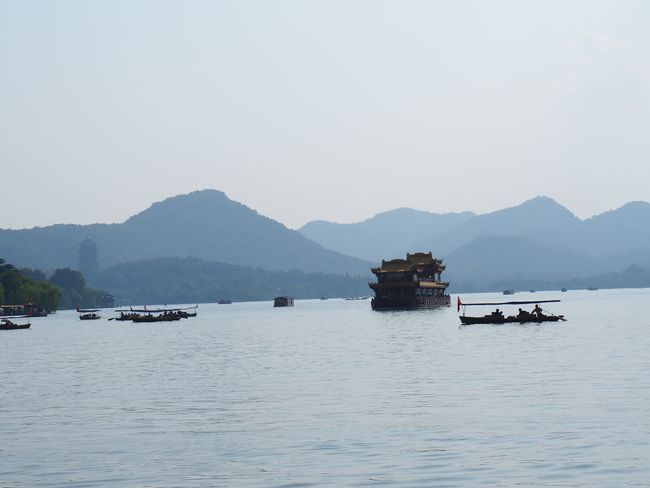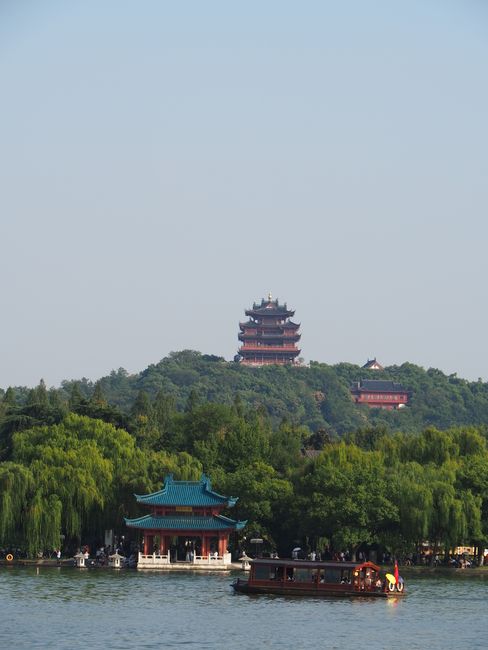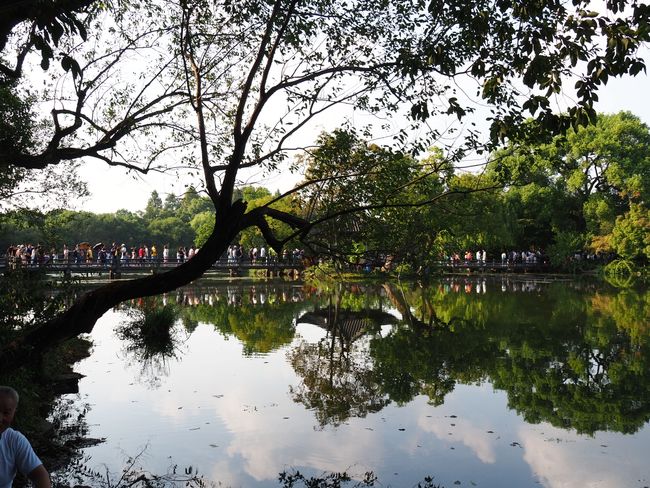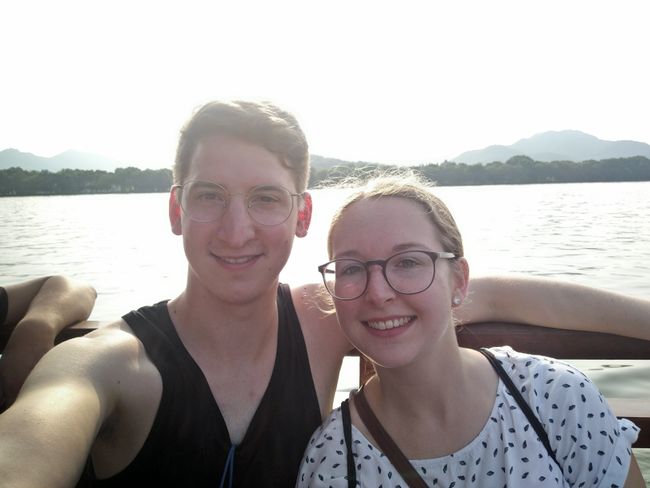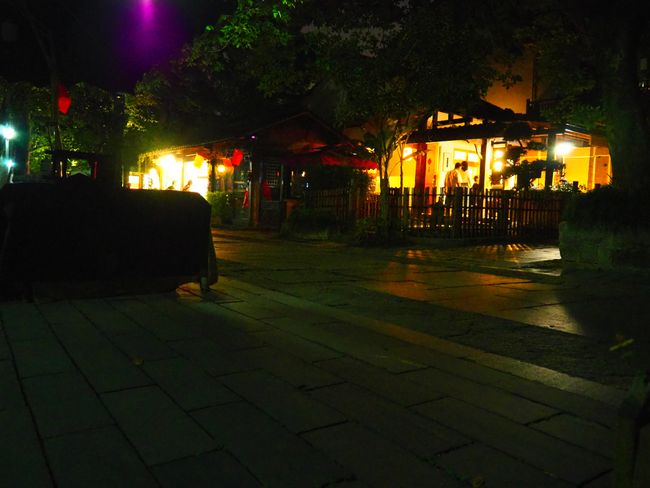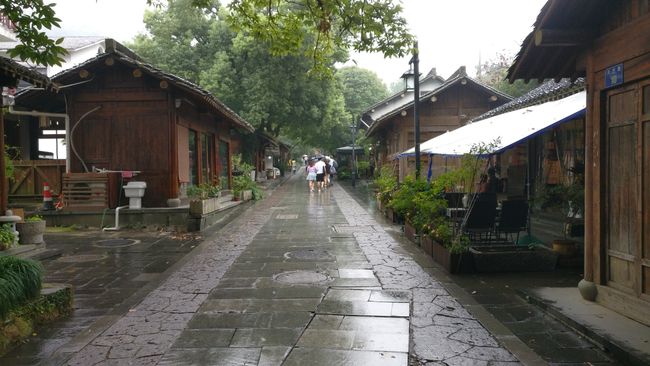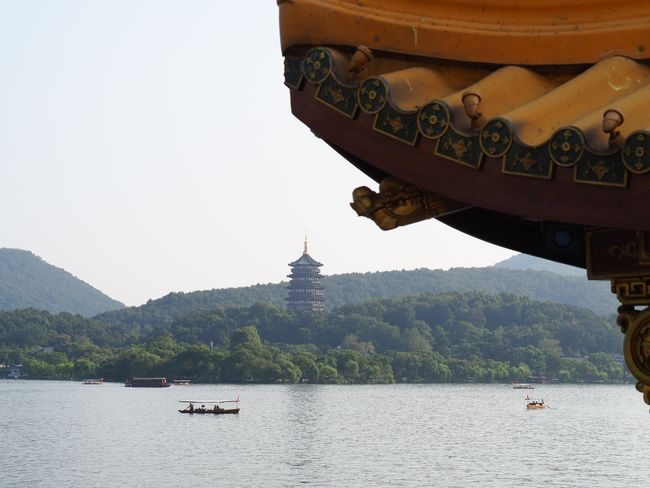Hello Hangzhou! 1/2
Foilsithe: 08.10.2019
Liostáil le Nuachtlitir
From Simon's diary:
Friday the 4th of October 2019 - 1st day in Hangzhou - 03:34
I can't sleep. I've been lying awake for over an hour now, because there is no peace between the rock-hard bed (unfortunately Chinese standard), mosquito buzzing, and bat squeaking. In addition, every 5 minutes I remember another detail of today that I absolutely have to write down.... So why not go all the way?
The wild ride started at 8 o'clock in the morning. After breakfast, preparing snacks, and packing the last things into our hiking backpack, we leave the house 10 minutes late as usual. Who is to blame is not known (probably me as always).
Scooter and his 90s friends sweeten my time on the metro, it really gets exciting! Across from us, there is a 6-year-old boy with his parents, also on the way to the train station. His calm and attentive manner reminds me of my nephew Mattis, his love for his petting shirts reminds me of my nieces Luisa, Leonie, and Alma :) A slight feeling of homesickness comes up. And the feeling that petting shirts are obviously THE SHIT for kids worldwide!
With 45 minutes of buffer time for security checks, we arrive at Suzhou North Railway Station, from where according to our apartment agent all high-speed trains depart. The procedure at the large train stations is similar to that at airports: huge terminals, security checks, platform gates, and constant announcements. Since we can't quite decipher the Chinese tickets, I ask the nearest policeman for the platform. He coolly replies, 'Not here.' - What? - 'Not the right station.' - What?! - On my phone, he points to Suzhou Railway Station, which we passed 30 minutes ago. FUCK. Aware of the time pressure, I take my subtly reddened Anna, filled with anger and despair, by the hand and we sprint back to the subway. After a short round of blaming each other, I plan in the subway car how we can make it through security checks and find the correct platform within 13 minutes at this large, presumably overcrowded, and unknown train station. The odds are admittedly against us. And then there is the problem of intercultural communication. Hastily, I learn the words for 'Please help, we don't have much time'.
Arriving at the train station, we rush out of the subway and I start asking for directions. 3 people, 3 directions. A friendly policeman finally personally shows us the way after my persistent act of pretending to be stupid. We start pushing past the queues, leaving a good first impression? Check, I can do that ;) Security personnel and railway staff take our pushing quite calmly. Sometimes a glance at the ticket is enough or the foreigners simply don't know any better.
The highlight is the escalator that gets stuck due to overload because the 2 guys ahead of us are transporting 2 shopping carts full of fruit to the next floor. We have to climb over them. Pushing again, riding escalators, and suddenly we are standing on the platform. A glance at the clock, 5 minutes early, relief sets in. Anna finds my joke that we could have continued lying down for another 3 minutes... almost funny. Boarding the full train, our hope is fulfilled that we have been upgraded to seats. It feels good after the stress.
Compared to the ICE, the Chinese high-speed train Gaotie in 2nd class has rows of 5 and is always on time. Otherwise, it is very clean, comfortable, hopelessly overcrowded due to the golden week, but so spacious that even with my long legs, I have plenty of legroom.
China is geographically larger than Europe. The 1.4 billion inhabitants are settled over 90% in the coastal provinces between Beijing and Hong Kong, in the rest of the country, Campino sings his lonely song (...dead zone). The result is numerous millions of cities, which have more inhabitants than the European metropolises, but we don't know their names. This particularly includes the area near Shanghai (24 million) with Suzhou (11 million), Hangzhou (10 million), Wuxi (7 million), Jiaxing (5 million), etc., including their metropolitan areas. Thus, around 100 million people live on the territory of Baden-Württemberg.
'Why the geography lesson?' some might ask. On the journey to Hangzhou, I become really aware of this almost unimaginable extent. We drive through ONE SINGLE village for 200 km. Residential building, factory, residential building, rice field, residential building. And in the background, there are always at least 2 power plants in the middle of the endless village to meet the gigantic local energy demand. An impression that makes you think...
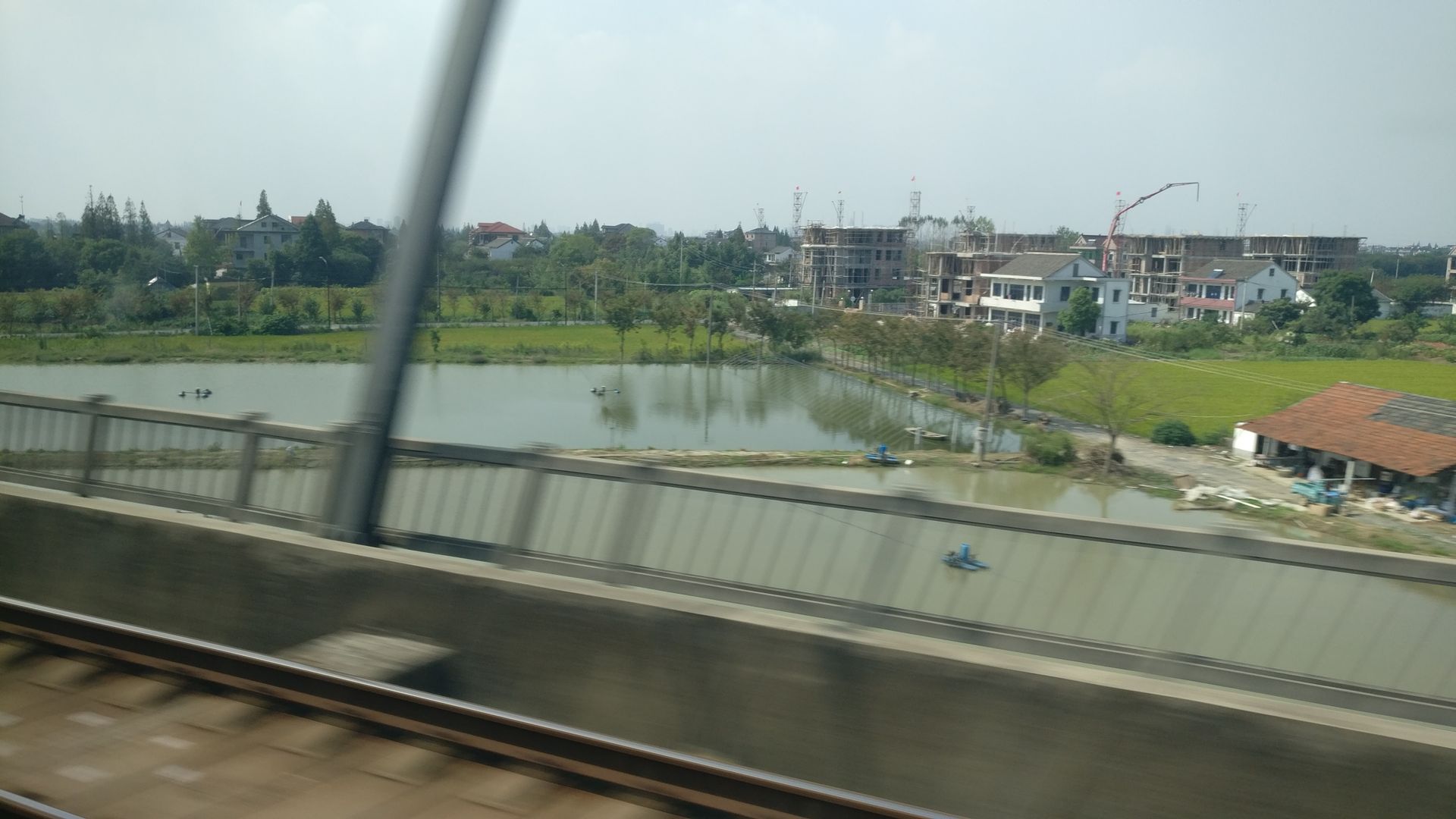
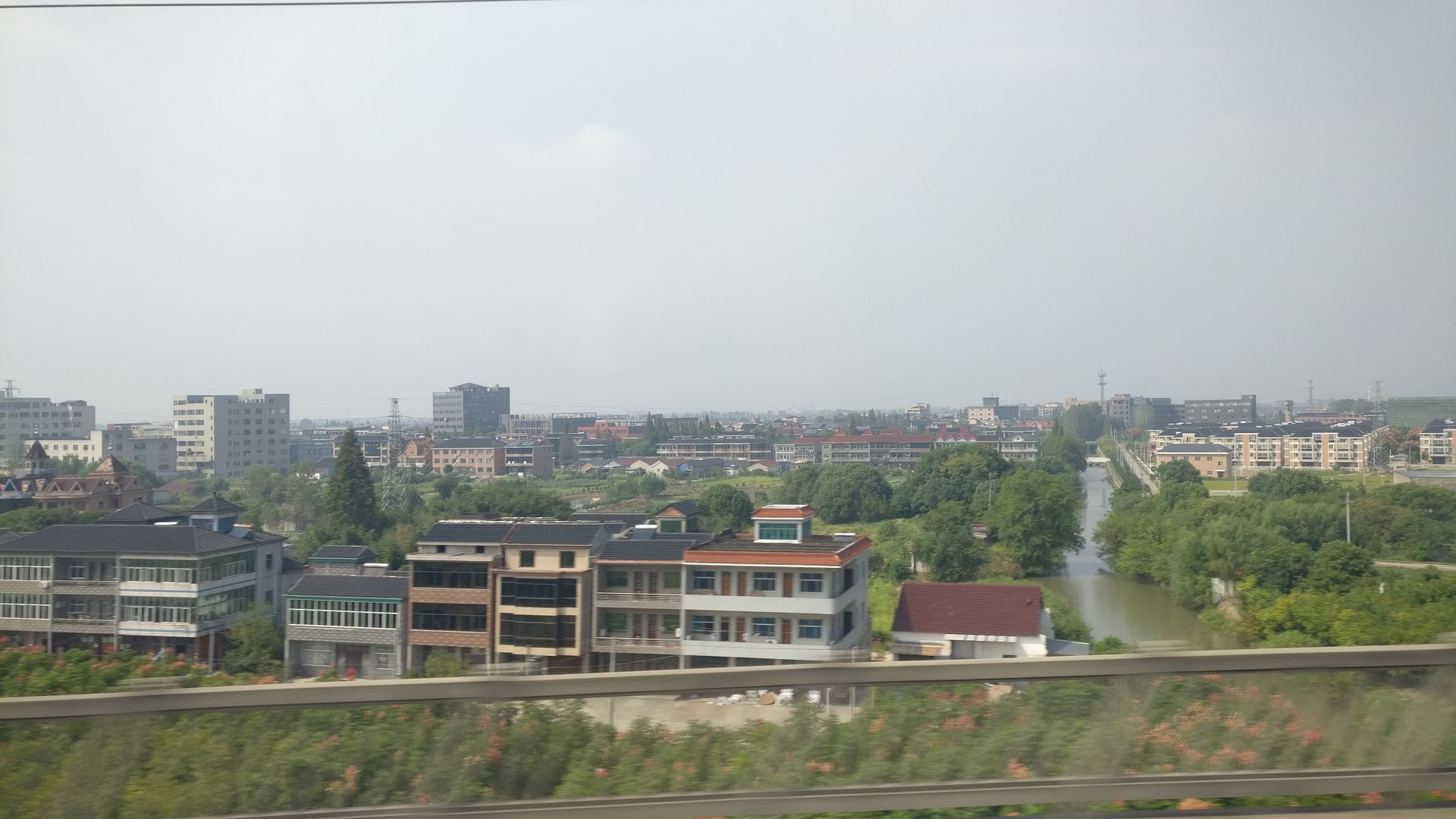
After a 2-hour journey, we arrive in Hangzhou and take the metro to the famous West Lake in the middle of a beautiful mountain range in China.
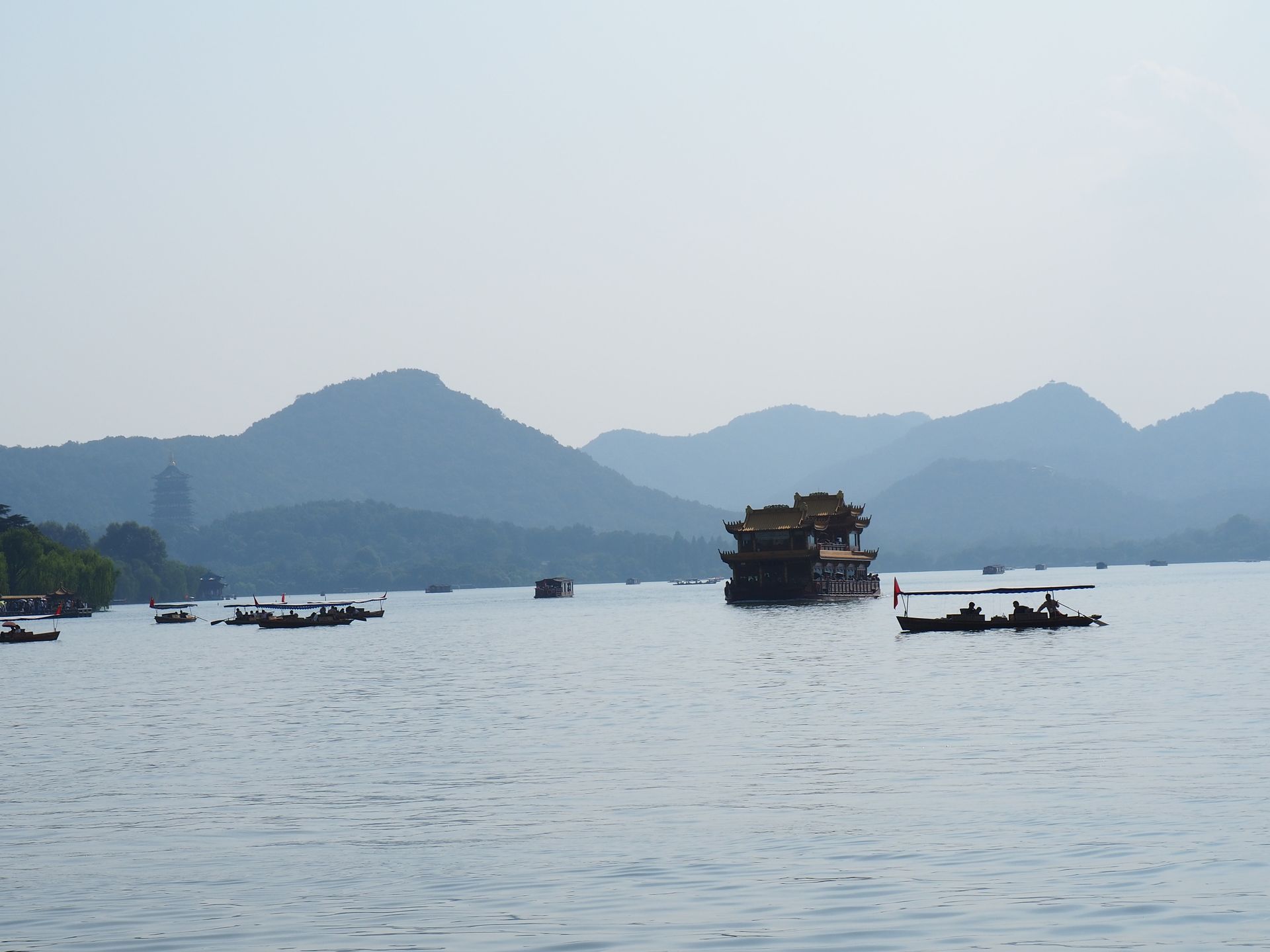
Almost a cozy and relaxing place, if half of China hadn't had the same idea. In addition, for some reason, we constantly become the subject of hidden snapshots and meet gazes from all directions.
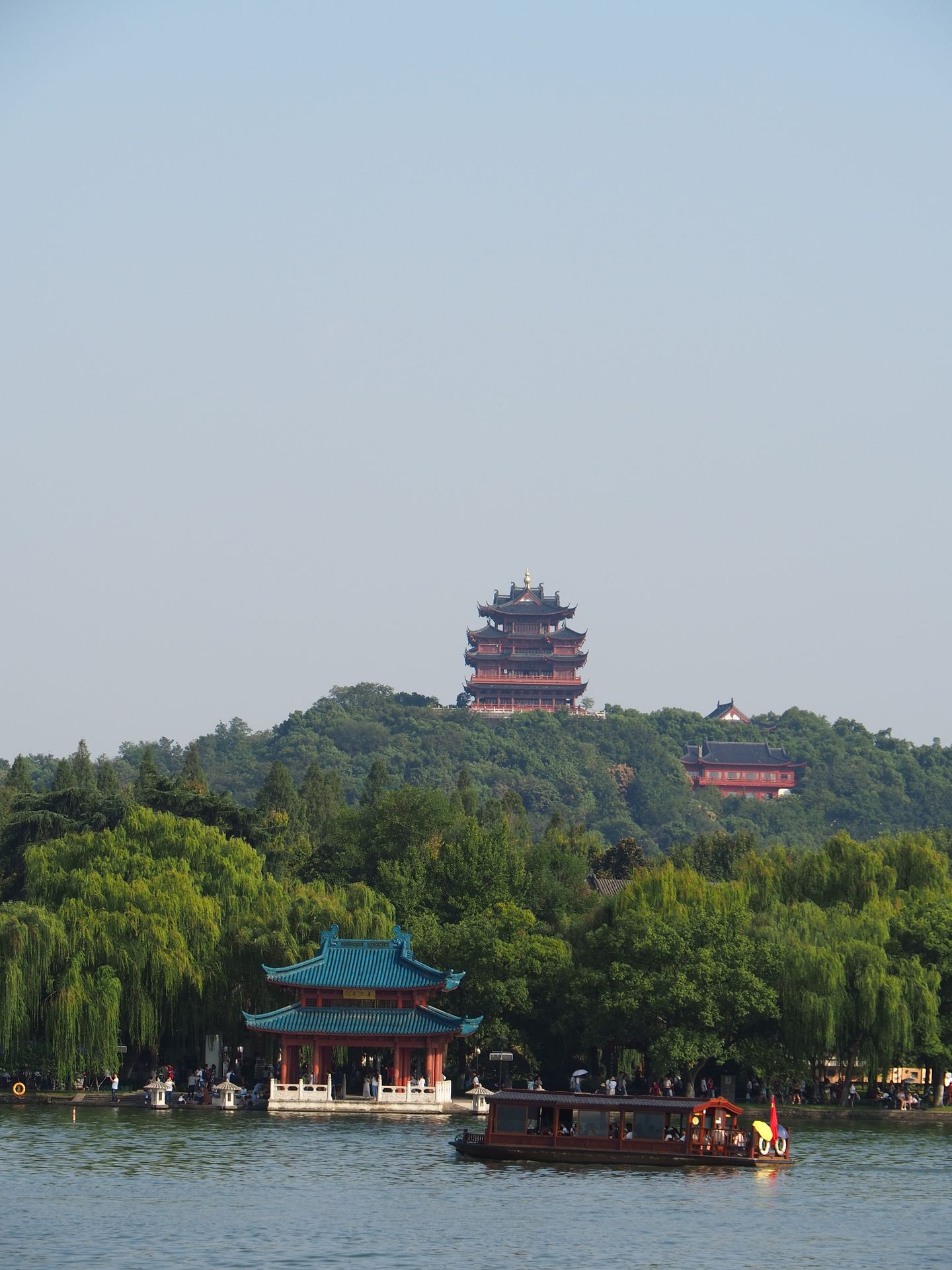
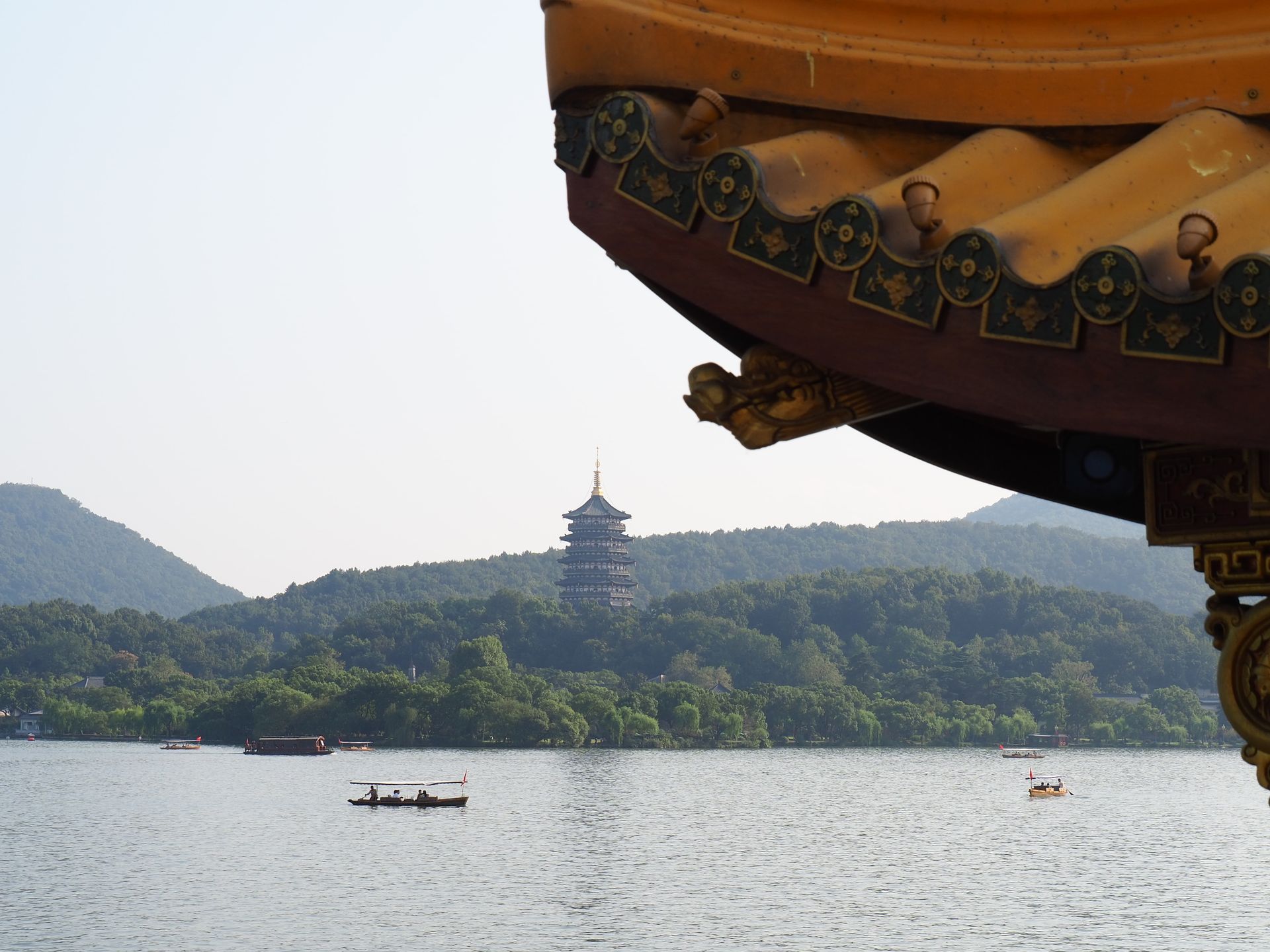
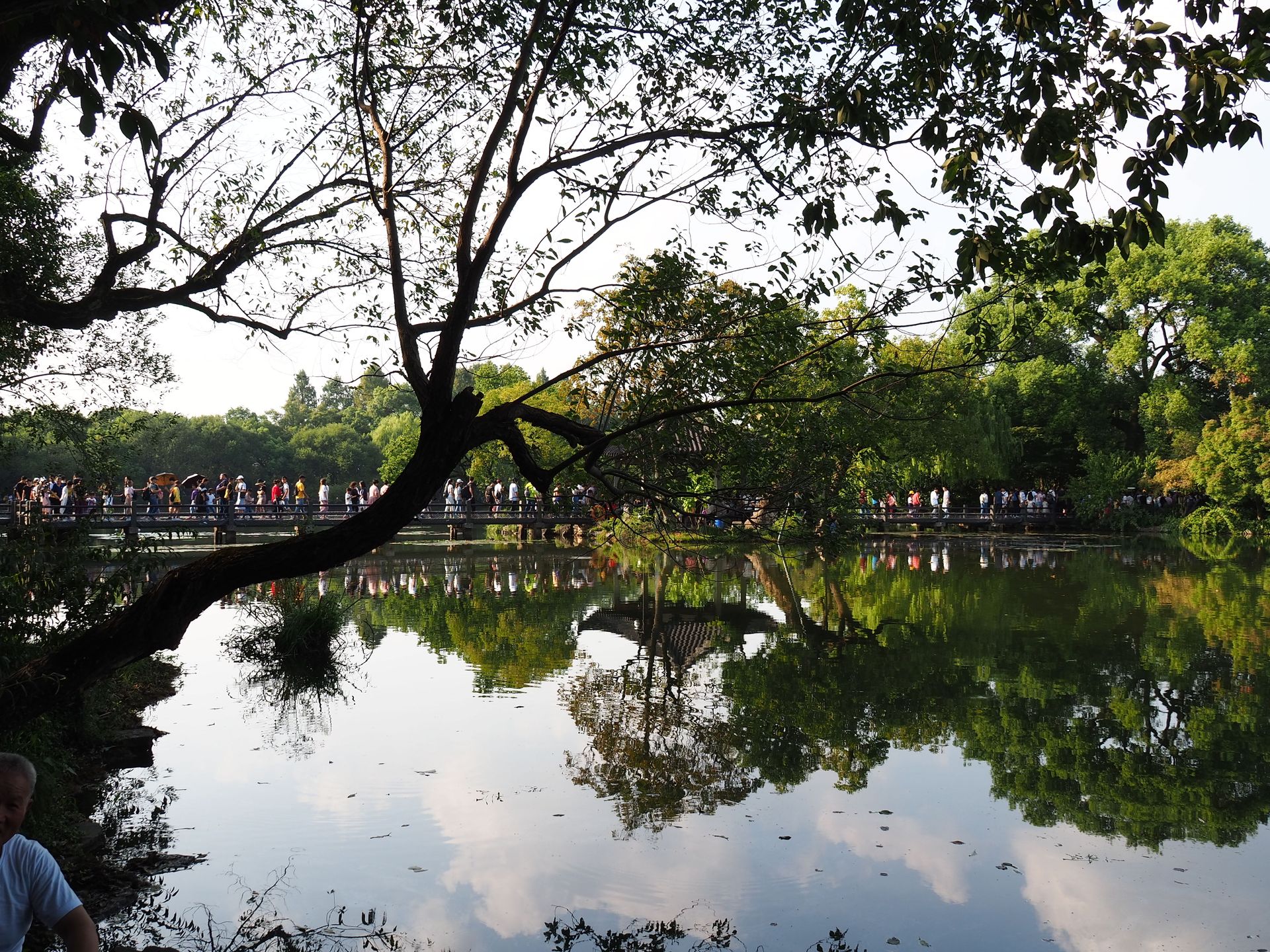
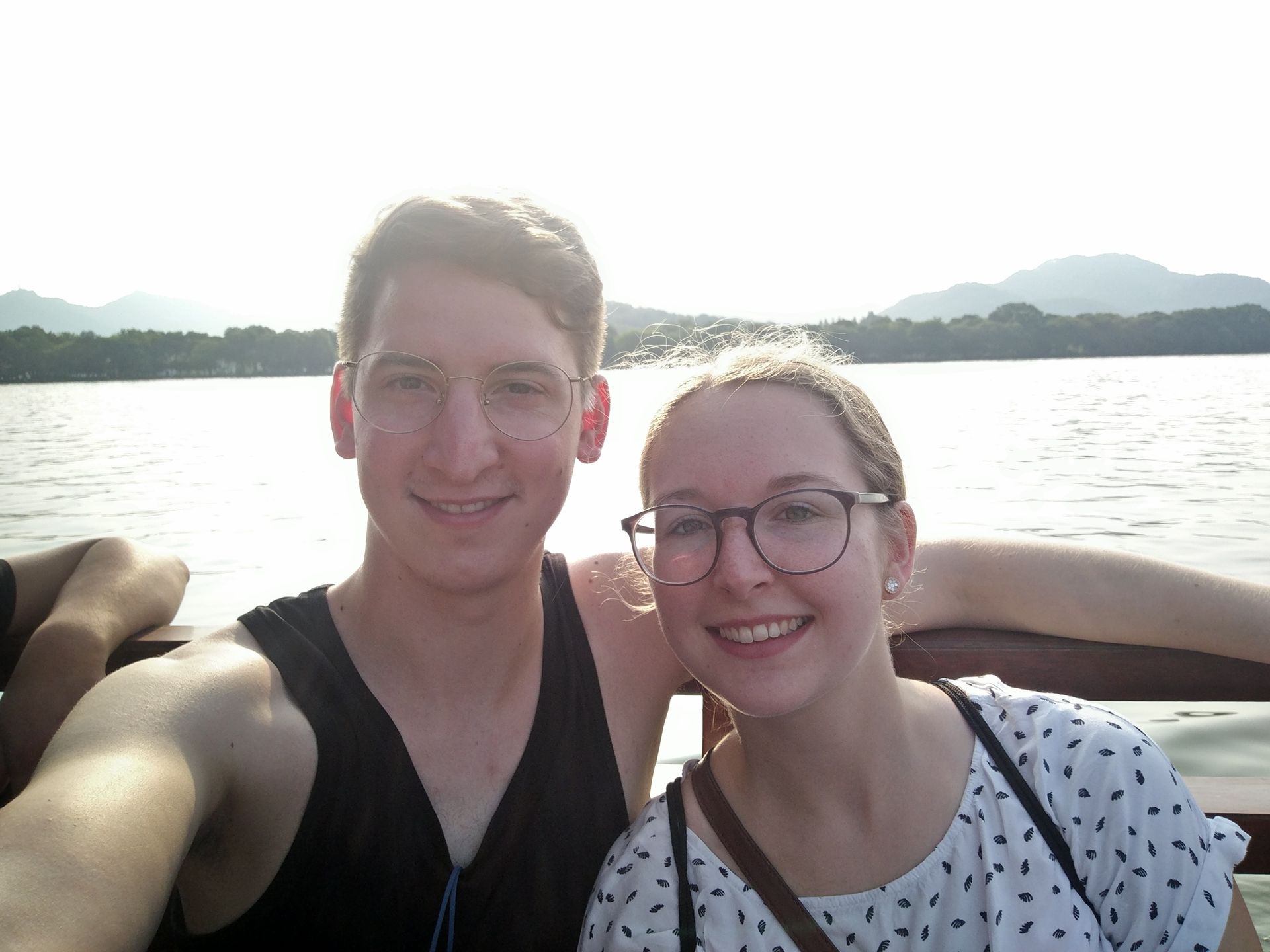
The path through the alley in the middle of the jungle-like overgrown mountain slopes is lined with small restaurants, cozy teahouses, and clothing stores that sell traditional Chinese garments. There is a gentle smell of tea in the air. Retirees dry freshly harvested leaves in heated tubs, constantly stirring, to make green tea and sell it. No kitsch, flashing lights, or constant noise of the big city.

In a back alley, the approximately 60-year-old owner of the hotel greets us and invites us to sit at her table for tea. She ceremonially serves black tea, constantly smiling, and talks non-stop to us. We don't understand much, but some familiar words (piaoliang, haizi, Jia) come out: She is completely beside herself with how beautiful Anna and I are. And according to her, we will have a whole stable full of beautiful children! I notice the honey being spread around our mouths... but it tastes delicious.
Soon a young couple joins us, helping out as interpreters. René runs a hotel in town, Thomas works as an engineer in Shanghai. Both find the constant flattery of the hostess as amusing as we do. When asked about the photos and gazes on us, Thomas says, 'You look like movie stars. Blond and tall.' Is he talking about Angelina Joulie and Brad Pitt? Or maybe Beauty and the Beast? Just the thought of Anna and me standing in a Chinese living room between waving cats and a television makes us smile.
Both are amateur hikers and help us plan for tomorrow's trip. After being invited for coffee tomorrow, they set off again, and Anna and I explore the now darkened area. In the darkness, we sit on a bench by the roadside and eat our snacks. This time, we secretly observe the passing people. Singing families, giggling teenagers, and monks stroll through the lantern-lit night. We absorb the relaxed and peaceful atmosphere.
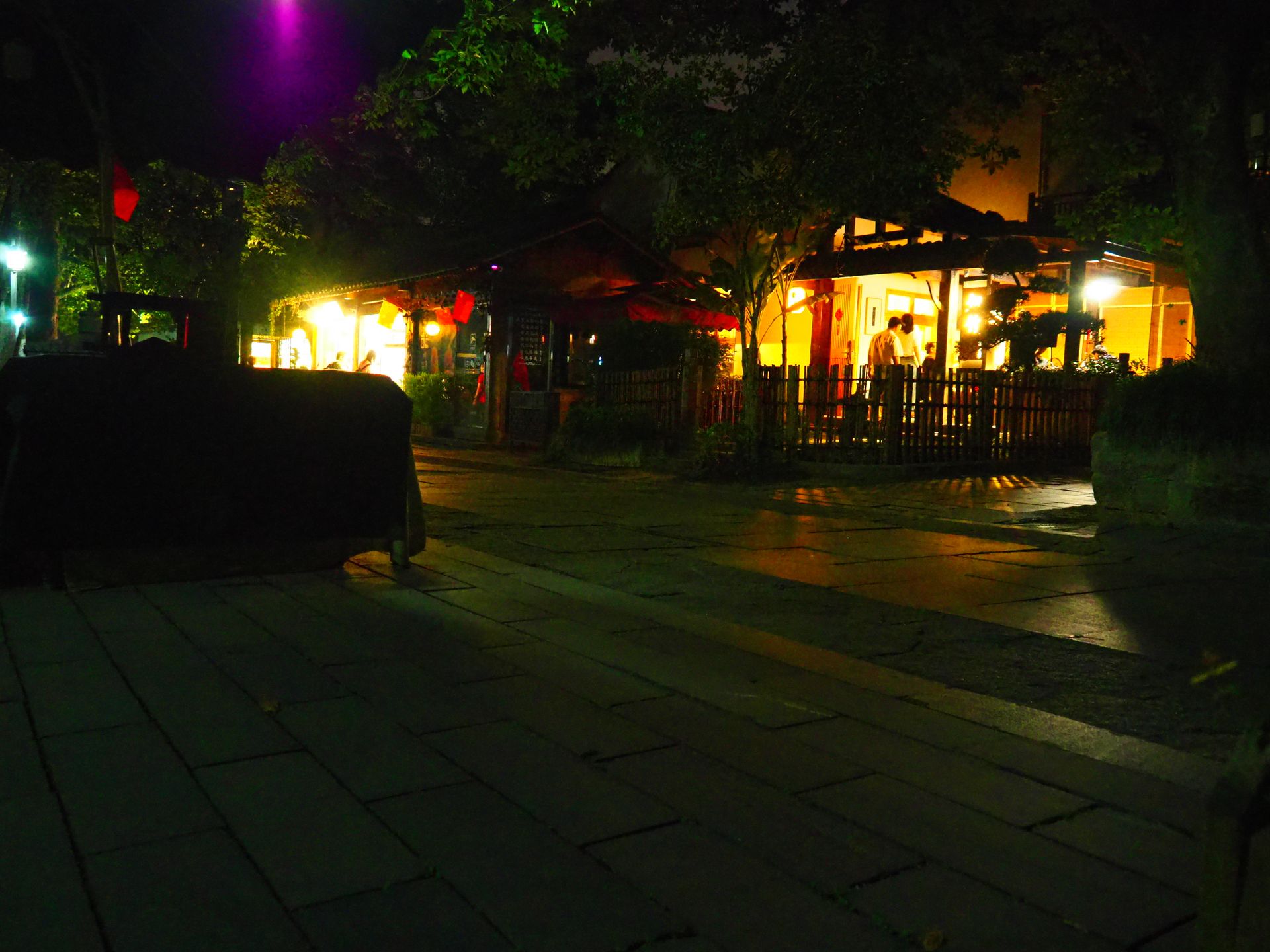

After a cold shower, the evening ends with red wine and a round of MauMau. Just to make sure, I set the alarm so that I don't oversleep...
Liostáil le Nuachtlitir
Freagra
